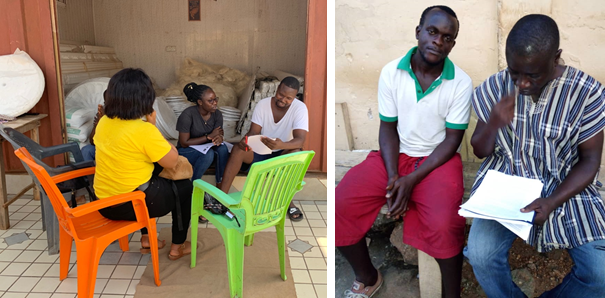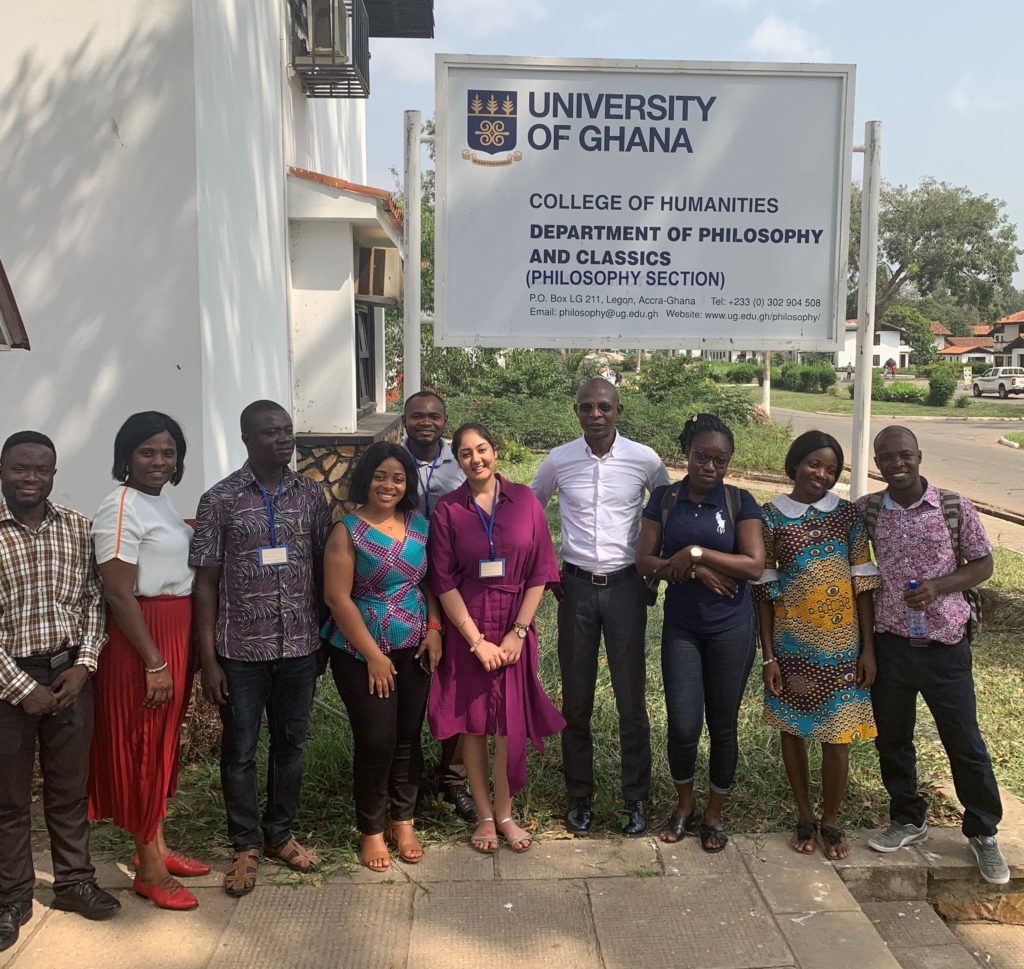News
Workshop for the Research Agents in Ghana gathering data on attitudes towards psychosis
January 15th 2019
NeuroGenE ran a 5-day workshop in December led by Research Assistant, Ms. Kiran Manku, for the Research Agents who will be collecting and handling data for the small project led by Dr. Caesar Atuire, on “Frameworks of attitudes towards psychosis in Ghana”. The project intends to capture the local understandings of psychosis and associated health care options, and explore their normative underpinnings, to provide a basis for further research into creating a holistic and culturally sensitive model of mental health care for Ghana, and if appropriate, other African countries. This research aligns with the core research theme of NeuroGenE in examining bioethical tensions in the cultural translation of mental health and integrating this into the global psychiatric genomic framework. Ms. Manku has been working on the methodology of the project, where she helped create an attitude survey for the general population in Ghana and an interview for persons with psychosis. The workshop aimed to ensure the data collection tools are valid for Ghanaian context and to equip the Research Agents with the skills to conduct this research.
The first sessions of the workshop focused on understanding how to create and conduct surveys and interviews that are valid, reliable and ethical. This was a wonderful opportunity for the Research Agents, who are postgraduate students at the University of Ghana, to build their capacity in mixed methodology research skills, through learning how the tools were created, the reasoning behind the items, and the various ethical tensions to balance. As the students were from a diverse range of disciplines from philosophy to psychiatry, they engaged with exploring the topic of psychosis and research methodology from these perspectives. In order to ensure the validity of the tools in the Ghanaian context, the Research Agents critically analysed the research tools, identifying how the items would be understood and translated into the local languages.
Following the informative sessions, the Research Agents conducted 2 days of fieldwork and practiced data handling. The fieldwork was a valuable opportunity to ensure the tools were valid, but also for the students to refine their research skills and practice adapting to unexpected obstacles whilst considering the ethical factors involved. Feedback from the community was extremely positive; many commented on the great need for research on persons with psychosis in the local context and were very willing to give their time to support such research.

Research Agents completing fieldwork practice in Accra
Overall, the workshop was a huge success as the Research Agents are prepared to fulfill data collection to a high standard, using research tools that are valid for the Ghanian context, and will begin data collection later this month. The Research Agents will receive a further session focused on interview techniques led by Dr. Lily Kpobi, a collaborator in the project with a wealth of experience conducting interviews about psychosis in Ghana. We are delighted to see such progress on Dr. Atuire’s project, and are grateful to him and Mr. George Barimah for hosting Ms. Manku during her time in Ghana.

Ms. Manku with Dr. Atuire and some of the Research Agents at the University of Ghana















